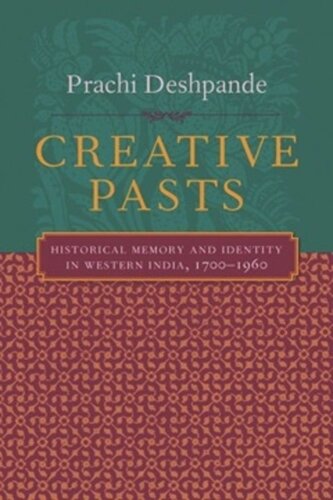

Most ebook files are in PDF format, so you can easily read them using various software such as Foxit Reader or directly on the Google Chrome browser.
Some ebook files are released by publishers in other formats such as .awz, .mobi, .epub, .fb2, etc. You may need to install specific software to read these formats on mobile/PC, such as Calibre.
Please read the tutorial at this link: https://ebookbell.com/faq
We offer FREE conversion to the popular formats you request; however, this may take some time. Therefore, right after payment, please email us, and we will try to provide the service as quickly as possible.
For some exceptional file formats or broken links (if any), please refrain from opening any disputes. Instead, email us first, and we will try to assist within a maximum of 6 hours.
EbookBell Team

5.0
110 reviewsThe "Maratha period" of the seventeenth and eighteenth centuries, when an independent Maratha state successfully resisted the Mughals, is a defining era in the history of the region of Maharashtra in western India. In this book, Prachi Deshpande considers the importance of this period for a variety of political projects including anticolonial/Hindu nationalism and the non-Brahman movement, as well as popular debates throughout the nineteenth and twentieth centuries concerning the meaning of tradition, culture, and the experience of colonialism and modernity.
Sampling from a rich body of literary and cultural sources, Deshpande highlights shifts in history writing in early modern and modern India and the deep connections between historical and literary narratives. She traces the reproduction of the Maratha period in various genres and public arenas, its incorporation into regional political symbolism, and its centrality to the making of a modern Marathi regional consciousness. She also shows how historical memory provided a space for Indians to negotiate among their national, religious, and regional identities, pointing to history's deeper potential in shaping politics within thoroughly diverse societies.
A truly unique study, Creative Pasts examines the practices of historiography and popular memory within a particular colonial context, and illuminates the impact of colonialism on colonized societies and cultures. Furthermore, it shows how modern history and historical memory are jointly created through the interplay of cultural activities, power structures, and political rhetoric.